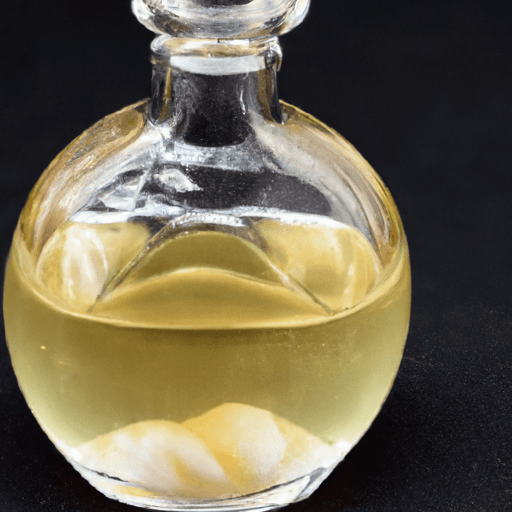Unlocking the Flavors: A Guide to Cocktail Bitters
Are you a fan of complex and well-balanced cocktails? If so, then you are likely familiar with one of the secret ingredients that elevates their flavors: cocktail bitters. These potent little elixirs have been gracing mixologist’s shelves for ages, adding depth and character to your favorite libations. But have you ever wondered about the magic that resides in those tiny bottles? Let’s delve into the world of cocktail bitters and uncover their fascinating story.
Delicate Drops of Flavor
Cocktail bitters are highly concentrated extracts made from a variety of botanicals. These potent drops are created through a process of infusing aromatic elements such as herbs, spices, roots, fruits, and seeds in a solution of alcohol and water. The result is an explosion of flavors that can range from vibrant and fruity to bitter and spice-forward.
A Symphony of Tastes
The beauty of cocktail bitters lies in their ability to balance and enhance the overall flavor profile of a cocktail. They act as a bridge, bringing together the different components of a drink and harmonizing them into a cohesive and memorable experience.
Bitters add complexity and depth by introducing a range of flavors that stimulate the taste buds. Think of them as the bass notes in a symphony orchestra - their presence may not always be immediately noticeable, but their absence would leave the composition lacking that certain je ne sais quoi.
Versatile Culinary Allies
While cocktail bitters are a staple in the mixology world, their use extends far beyond the bar counter. These flavorful drops can also work wonders in the realm of cooking, where they add a depth of flavor to various dishes.
Bitters can be used to enhance both sweet and savory recipes, adding a touch of complexity that elevates the final result. A few drops of aromatic bitters can transform a simple vinaigrette, lend depth to a rich stew, or even heighten the flavors of a decadent dessert. The possibilities are endless!
The Nutritional Twist
When it comes to nutritional value, cocktail bitters are not typically ingested in large enough quantities to have a significant impact. However, some bitters are made from natural ingredients that contain beneficial compounds. For example, certain herbs used in the production of bitters, like chamomile or ginger, are believed to have potential health benefits.
It’s important to keep in mind that while bitters can enhance the overall flavor of a dish, they should be enjoyed in moderation, as their alcohol content can be quite high.
A Glimpse into History
The history of cocktail bitters is rich and storied. Dating back to the early 19th century, bitters were first concocted as medicinal tinctures. Their popularity soared during the golden age of cocktails in the late 19th and early 20th centuries, when bartenders realized the potential of these flavor powerhouses.
One of the most famous brands in the world of bitters is Angostura. Originating from Venezuela, Angostura bitters were originally created by a German doctor as a remedy for sea sickness. Little did he know that his creation would become an essential ingredient in countless classic cocktails such as the Old Fashioned and Manhattan.
Exploring the World of Cocktail Bitters
Today, the world of cocktail bitters has expanded, offering a plethora of options to delight taste buds. From classic aromatic bitters to exotic and modern creations, there is a bitters flavor for every occasion.
So next time you find yourself behind the bar or in the kitchen, reach for that tiny bottle of cocktail bitters and unlock a symphony of flavors. Whether you’re stirring up a sophisticated cocktail or experimenting with new depths in your culinary creations, these delicate drops of flavor are sure to elevate your experience to new heights. Cheers to the magic of cocktail bitters!
Origin:
- Cocktail bitters originated in the early 19th century as medicinal tinctures. They were initially crafted as a remedy for various ailments, including stomach issues.
Common Uses:
- Cocktail bitters are primarily used as a flavoring agent in cocktails. A few drops of bitters can enhance and balance the overall taste of a drink.
- They are commonly used in classic cocktails like the Old Fashioned, Manhattan, and Martini.
- Bitters are also used in non-alcoholic beverages, such as mocktails or as a flavoring agent in soda water.
Nutritional Benefits:
- Cocktail bitters are typically used in such small quantities (drops) that the nutritional impact is negligible.
- They are derived from botanical ingredients, which may contain trace amounts of vitamins and minerals, but their nutritional value is minimal in the context of consumption.
Unique Properties and Historical Significance:
- Bitters are characterized by their highly concentrated, intensely flavored extracts made from various herbs, spices, fruits, and botanicals.
- They often have a bitter taste due to the presence of ingredients like gentian root and quinine.
- One of the most famous brands of bitters is Angostura, which was created in Venezuela in 1824 by a German doctor named Johann Gottlieb Benjamin Siegert as a stomach tonic.
- Bitters were commonly used as digestive aids and to stimulate appetite in the past.
- Over time, bitters evolved from medicinal remedies to essential components of the craft cocktail movement, playing an integral role in cocktail recipes and mixology.




Use the share button below if you liked it.
It makes me smile, when I see it.